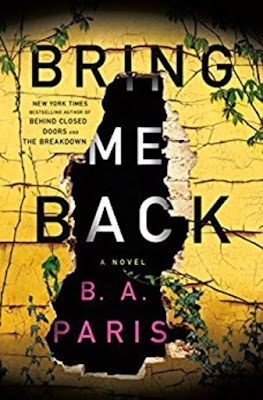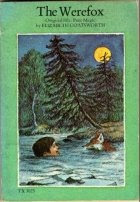118. Irma Voth by Miriam Toews
Irma Voth by Miriam Toews
(Canada) - (US)
Pages: 255 pages
Ages: 18+
Finished: May 15, 2011
First Published: Apr. 5, 2011 CAN (Sep. 6, 2011 US)
Publisher: Knopf Canada
Genre: literary fiction
Rating: 3/5
First sentence:
Acquired: Received a review copy from Random House Canada.
Reason for Reading: I adored "The Flying Troutmans" and wanted to try another book by the author.
Irma Voth is about a family who are Mennonites but ultimately that is not a big issue in the story; they could really be any very rural, backwoods type of people as the Voths are pretty much loners and there is not a lot of Mennonite community activities or lifestyle portrayed in the book.
The Voths are originally from Canada but one day they picked up and moved to a Mennonite Community in Mexico. They live remotely, on land where the father owns three houses. We meet Irma as her husband is leaving her. Irma has been shunned by her father because she eloped and married a Mexican. They live in one of his houses and work his land for free but he does not speak with them. Irma's husband comes back every now and then as he is involved in the drug trade and he keeps his "goods" in the barn. A famous Mexican director comes to the area and rents the third house on the property for his crew as he makes a movie about Mennonites. The father hates everything these people stand for but his youngest daughter becomes curious and sneaks away to watch them. Irma is offered a job as translator since she speaks German, Mexican and English, which she excepts, since she has no income and no husband now. The plan is to eventually leave the stranglehold of her father.
There is no denying that Toews is a beautiful writer who has a lyric way with words and can add a touch of wit to scenes where it is least expected. The story is a slow moving one, not one to be rushed, even though I did read it within the time frame of a day. I find it hard to review this book because I'm not ecstatic about the story but neither did I dislike it. I never really connected with the characters. I found the story interesting though perhaps a bit "high-brow" at times, taking itself too seriously. But I never once stopped enjoying the story though it took a long time to go anywhere. I preferred the second half of the book over the first. In the second half, Irma gets away from her father and moves to Mexico City where she learns a whole new way of live. And yet, through it all, she still yearns for the corn fields back home.
Irma herself is a character with many crosses to bear. She has the two men in her life, her father and husband, who have treated her unwell and yet she in turn has great guilt over something she has done to each of them in turn. Irma actually carries a lot of guilt for things she blames herself for causing and people she has hurt, starting with own soul. Irma learns who she is on this journey. Learns if it is possible to forgive herself and if it is possible for her to forgive the others as well. Certainly, a well-written, good read if not necessarily a gripping read. I'm still interested in reading the author's other books as I enjoy her writing style.
(Canada) - (US)
Pages: 255 pages
Ages: 18+
Finished: May 15, 2011
First Published: Apr. 5, 2011 CAN (Sep. 6, 2011 US)
Publisher: Knopf Canada
Genre: literary fiction
Rating: 3/5
First sentence:
Jorge said he wasn't coming back until I learned how to be a better wife.
Acquired: Received a review copy from Random House Canada.
Reason for Reading: I adored "The Flying Troutmans" and wanted to try another book by the author.
Irma Voth is about a family who are Mennonites but ultimately that is not a big issue in the story; they could really be any very rural, backwoods type of people as the Voths are pretty much loners and there is not a lot of Mennonite community activities or lifestyle portrayed in the book.
The Voths are originally from Canada but one day they picked up and moved to a Mennonite Community in Mexico. They live remotely, on land where the father owns three houses. We meet Irma as her husband is leaving her. Irma has been shunned by her father because she eloped and married a Mexican. They live in one of his houses and work his land for free but he does not speak with them. Irma's husband comes back every now and then as he is involved in the drug trade and he keeps his "goods" in the barn. A famous Mexican director comes to the area and rents the third house on the property for his crew as he makes a movie about Mennonites. The father hates everything these people stand for but his youngest daughter becomes curious and sneaks away to watch them. Irma is offered a job as translator since she speaks German, Mexican and English, which she excepts, since she has no income and no husband now. The plan is to eventually leave the stranglehold of her father.
There is no denying that Toews is a beautiful writer who has a lyric way with words and can add a touch of wit to scenes where it is least expected. The story is a slow moving one, not one to be rushed, even though I did read it within the time frame of a day. I find it hard to review this book because I'm not ecstatic about the story but neither did I dislike it. I never really connected with the characters. I found the story interesting though perhaps a bit "high-brow" at times, taking itself too seriously. But I never once stopped enjoying the story though it took a long time to go anywhere. I preferred the second half of the book over the first. In the second half, Irma gets away from her father and moves to Mexico City where she learns a whole new way of live. And yet, through it all, she still yearns for the corn fields back home.
Irma herself is a character with many crosses to bear. She has the two men in her life, her father and husband, who have treated her unwell and yet she in turn has great guilt over something she has done to each of them in turn. Irma actually carries a lot of guilt for things she blames herself for causing and people she has hurt, starting with own soul. Irma learns who she is on this journey. Learns if it is possible to forgive herself and if it is possible for her to forgive the others as well. Certainly, a well-written, good read if not necessarily a gripping read. I'm still interested in reading the author's other books as I enjoy her writing style.



I have mostly liked what I have read by her before, but I don't love her like some people do... I still will probably read this at some point.
ReplyDeleteThe 2 books I've read now are so different from each other. I can't see myself loving her either at this point. Though I do like her writing style. This is a short, quick enough read to squeeze in.
ReplyDeleteI enjoyed your review, Nicola (I'm here from Semicolon, btw). I also like the little extras you add - first line, why you read the book, rating it out of 5, etc.
ReplyDeleteRe the book, as someone from a Mennonite background myself, I put 'Irma Voth' on my 'would like to read' list as soon as I found out about it. The promo I read was very glowing. It's good to read an evaluation with its feet on the ground.
The book I reviewed today also happens to be about Mennonites. If you're interested, it's here.
Having read and liked TFT and A Complicated Kindness, Irma Voth is already on my reading radar. I don't expect to love it but I am very much looking forward to once again enjoying MT's unique writing style.
ReplyDeleteI really liked A Complicated Kindness but haven't read her others. I'm looking forward to them.
ReplyDeleteA Complicated Kindness is the one I hope to read next.
ReplyDelete